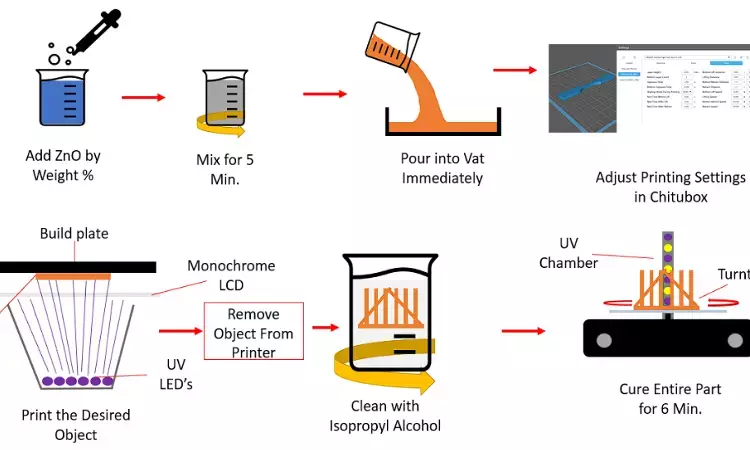- Home
- Medical news & Guidelines
- Anesthesiology
- Cardiology and CTVS
- Critical Care
- Dentistry
- Dermatology
- Diabetes and Endocrinology
- ENT
- Gastroenterology
- Medicine
- Nephrology
- Neurology
- Obstretics-Gynaecology
- Oncology
- Ophthalmology
- Orthopaedics
- Pediatrics-Neonatology
- Psychiatry
- Pulmonology
- Radiology
- Surgery
- Urology
- Laboratory Medicine
- Diet
- Nursing
- Paramedical
- Physiotherapy
- Health news
- Fact Check
- Bone Health Fact Check
- Brain Health Fact Check
- Cancer Related Fact Check
- Child Care Fact Check
- Dental and oral health fact check
- Diabetes and metabolic health fact check
- Diet and Nutrition Fact Check
- Eye and ENT Care Fact Check
- Fitness fact check
- Gut health fact check
- Heart health fact check
- Kidney health fact check
- Medical education fact check
- Men's health fact check
- Respiratory fact check
- Skin and hair care fact check
- Vaccine and Immunization fact check
- Women's health fact check
- AYUSH
- State News
- Andaman and Nicobar Islands
- Andhra Pradesh
- Arunachal Pradesh
- Assam
- Bihar
- Chandigarh
- Chattisgarh
- Dadra and Nagar Haveli
- Daman and Diu
- Delhi
- Goa
- Gujarat
- Haryana
- Himachal Pradesh
- Jammu & Kashmir
- Jharkhand
- Karnataka
- Kerala
- Ladakh
- Lakshadweep
- Madhya Pradesh
- Maharashtra
- Manipur
- Meghalaya
- Mizoram
- Nagaland
- Odisha
- Puducherry
- Punjab
- Rajasthan
- Sikkim
- Tamil Nadu
- Telangana
- Tripura
- Uttar Pradesh
- Uttrakhand
- West Bengal
- Medical Education
- Industry
Add on nanoparticles and antimicrobial agents in base material may improve prosthetic materials through 3D printing technology: Study

Three-dimensional (3D) printed acrylic resin base materials have been adopted in prosthetic dentistry. However, their mechanical and biological properties require improvement. The purpose of this clinical study was to evaluate the effect of adding zirconium oxide nanoparticles to a 3D printable acrylic resin base material for a 2-implant-retained complete mandibular overdenture in terms of peri-implant tissue health, surface roughness, and biofilm formation. Twenty edentulous patients were enrolled in this clinical parallel study. All patients received maxillary complete dentures opposing a 2-implant-retained mandibular overdenture. The participants were randomly divided into 2 equal groups according to the mandibular overdenture base material, nonmodified 3D printable acrylic resin (control group) or 3D printable acrylic resin base material modified with 3.0 wt% zirconium oxide nanoparticles (study group). Peri-implant tissue health and surface roughness were measured immediately at the insertion of the mandibular overdenture (T0), after 3 months (T1), and after 6 months (T2). Microbiological assessment of the denture base was done after 1 week, 1 month, 3 months, and 6 months of overdenture use. The data were analyzed using a statistical software program.
The Wilcoxon signed-rank test, paired t test, and Fisher exact test were used to compare distributed data. The Mann Whitney U test and repeated measures ANOVA test were used to compare distributed data at different times (α=.05). Results: The gingival index (GI), plaque index (PI), probing depth (PD), and surface roughness values at the baseline, 3 months, and 6 months were statistically higher with the nonmodified compared with the modified group (P=.001). Regarding the microbiological analysis, the nonmodified group also had a statistically higher mean bacterial and Candida albicans count than the modified group (P<.05). No significant increase in the bacteria was found in the nonmodified group with time (P=.252), but, for the modified group, a statistically significant decrease in bacteria count was found with time (P<.001). Adding zirconium oxide nanoparticles to a 3D printable acrylic resin base material was found to be promising. This addition improved the peri-implant tissue health and decreased surface roughness and biofilm formation.
Reference:
Albadwi MM, Elsheikh HA, Abozaed HW, ELdegla HEA, Mostafa AZH, Emera RMK. Impact of adding zirconium oxide nanoparticles to the 3D printable acrylic resin base material for implant-retained overdentures: A clinical comparative parallel study. J Prosthet Dent. 2024 Jun 10:S0022-3913(24)00354-8. doi: 10.1016/j.prosdent.2024.04.035. Epub ahead of print. PMID: 38862339.
Dr. Shravani Dali has completed her BDS from Pravara institute of medical sciences, loni. Following which she extensively worked in the healthcare sector for 2+ years. She has been actively involved in writing blogs in field of health and wellness. Currently she is pursuing her Masters of public health-health administration from Tata institute of social sciences. She can be contacted at editorial@medicaldialogues.in.
Dr Kamal Kant Kohli-MBBS, DTCD- a chest specialist with more than 30 years of practice and a flair for writing clinical articles, Dr Kamal Kant Kohli joined Medical Dialogues as a Chief Editor of Medical News. Besides writing articles, as an editor, he proofreads and verifies all the medical content published on Medical Dialogues including those coming from journals, studies,medical conferences,guidelines etc. Email: drkohli@medicaldialogues.in. Contact no. 011-43720751


